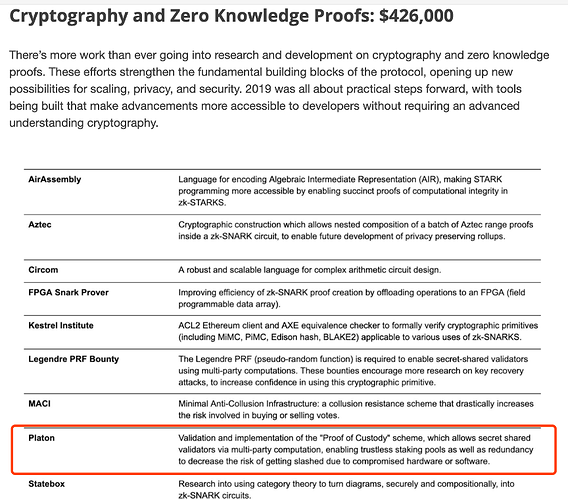Recently, PlatON has completed the design and implementation of the Proof of Custody solution (PoC) in phase one for Ethereum 2.0 with Secure Multi-Party Computation (MPC). Furthermore, PlatON has made it open-source on Github: GitHub - PlatONnetwork/proof_of_custody: MPC implementation of proof of custody.
The architecture of Ethereum 2.0 is based on a Beacon Chain connecting to multiple parallel shard chains, which are independent of each other. And in Ethereum 2.0, a part of committee composed validators will be responsible for producing blocks. Since these validators are independent of each other, there would definitely be data availability problem in the collaboration work.
To solve this problem, Ethereum 2.0 offers the PoC solution, of which the validator nodes are required to show a “proof of data ownership” when submitting a new produced block. In order to prevent single points of failure and reduce the delegating cost of validators, PoC is designed to be compatible with MPC. In addition, Trustless Staking Pools can be established with MPC, and it is highly possible to derive a new Staking model with it.
With this ambitious design goal, Ethereum invited PlatON to participate in the design and implementation of PoC with the grant funding from Ethereum Foundation.
For now, PlatON has completed the implementation of the first phase of it and made it open-source on Github (GitHub - PlatONnetwork/proof_of_custody: MPC implementation of proof of custody). According to the test with 20 nodes (execution environment: 4CPU + 8GB + 100Mbps) distributed in five cities including Frankfurt, Mumbai, Sydney, Singapore, and Tokyo, it takes about 3 seconds to generate the PoC, which definitely meets the requirement of block producing in 12 seconds.
After that, PlatON will continue to optimize its algorithms and implementation to complete MPC within 100 nodes.

